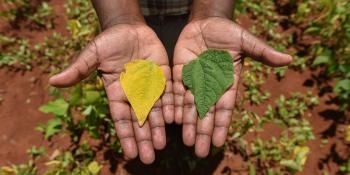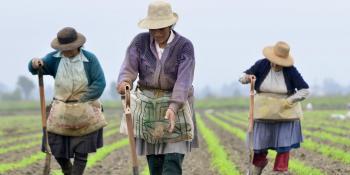Kenya integrates climate-smart agriculture into its Intended Nationally Determined Contribution
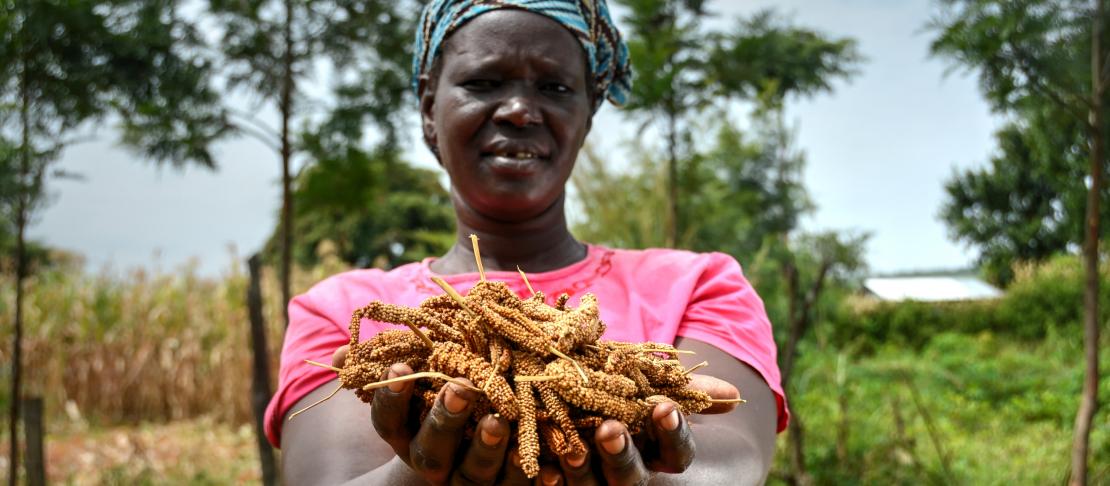
Technical support from CCAFS and CGIAR Centers helps build consensus for wider policy change.
Kenya is among 36 countries (as of September 21) that have recently submitted their Intended Nationally Determined Contributions (INDC) to the United Nations Framework Convention on Climate Change (UNFCCC). INDCs—a key driver towards a new climate agreement by the conclusion of the upcoming UNFCCC climate talks in Paris (COP21) this December— are the primary means by which governments can boldly state what steps they will take in the context of their national priorities, circumstances and capabilities to address climate change.
As a country highly vulnerable to the impacts of climate change, Kenya’s approach towards a low-carbon, climate resilient economy, entails both mitigation and adaptation components sourced from the country’s climate-smart agriculture framework program (CSA-FP). The CSA-FP was developed through technical and financial support from the NEPAD Climate Change Fund, Common Market for Eastern and Southern Africa (COMESA), East African Community (EAC), UK Department for International Development (DFID) and the CGIAR Research Program on Climate Change, Agriculture and Food Security East Africa (CCAFS EA) through scientists based at the International Livestock Research Institute (ILRI), Center for International Forestry Research (CIFOR), World Agroforestry Centre (ICRAF), and International Center for Tropical Agriculture (CIAT).
Through CCAFS expertise, we generated a useful analysis on the impacts of climate change on agriculture in Kenya.
“Work on Kenya’s CSA-FP commenced in January 2015. We engaged with CCAFS researchers and other experts in several sessions for technical guidance,” said Michael Obora, Assistant Director, Ministry of Agriculture, Livestock and Fisheries (MALF). His colleague, Robin Mbae notes that “through CCAFS expertise, we generated a very useful analysis on the impacts of climate change on agriculture in Kenya. Subsequently we were able to properly formulate programme result areas, what actions are needed under each area and the outputs to work towards."
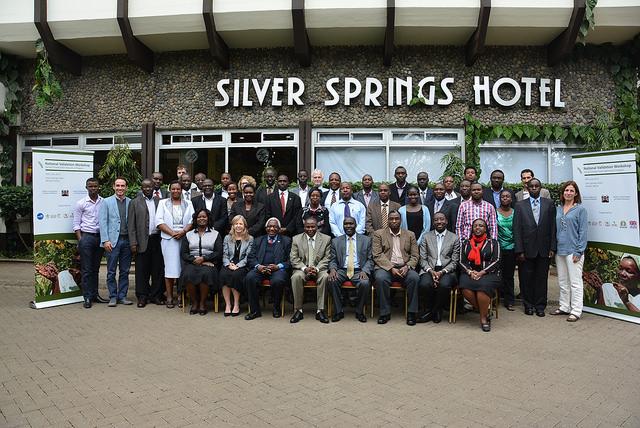
Stakeholders drawn from government, donor community, academia, research and civil society during the validation of the Kenya CSA-FP. Photo: V. Atakos (CCAFS)
Science-policy engagement initiatives building towards an ambitious INDC
Kenya’s INDC seeks to reduce 30% of Kenya’s greenhouse gas (GHG) emissions by 2030. The document was developed following a number of participatory multi-stakeholder and cross-sectoral consultative processes during the development of the National Climate Change Response Strategy (NCCRS) and the National Climate Change Action Plan (NCCAP) at national and county levels.
"Because Kenya also provided that they would like to pursue adaptation actions that 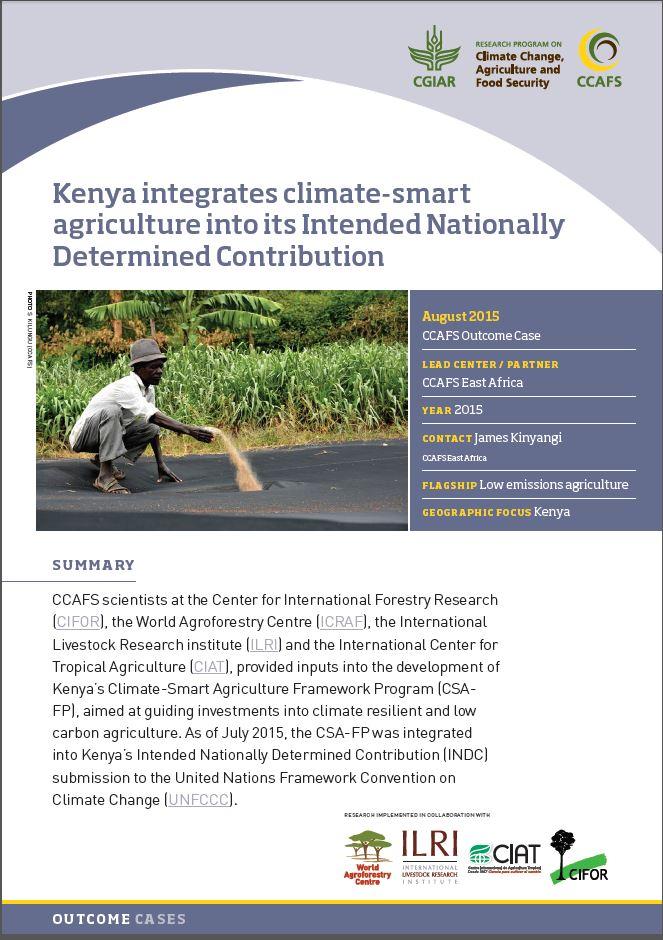
Since June 2013, CCAFS has been collaborating with the government of Kenya to discuss and take forward priority actions for the agriculture sector identified in the NCCAP (2013-2017).
Read more: Tackling climate change: Kenya holds first national adaptation planning meeting for agriculture
Video: Fatuma Hussein from the Climate Change Secretariat within the Ministry of Environment and Natural Resources in Kenya (MENR).
ILRI scientists working under the CCAFS program have established a research centre expected to generate more cost-effective and precise GHG emissions measurements for Kenya. Through the facility, the researchers intend to not only avail country specific measurements but also build local capacity in GHG measurement. In March, 2015, officers from the MENR visited the facility to learn more about its operations.
“I’m excited that there are facilities that can help our GHG reporting system and also our general reporting to the UNFCCC,” said Stephen King’uyu, who is acting Deputy Director for Mitigation and Adaptation in Kenya’s Climate Change Secretariat in the MEWNR.
Read more: Climate data "Made in Kenya" - An important first for Africa
In yet another innovation that aims to support decision making, a CSA prioritization tool ‘targetCSA’ is now available. This tool will support the targeting of CSA interventions in Kenya and eventually East Africa. The Kenyan government has requested to pilot this tool in preparation of the country’s INDC.
Download this outcome case study:
CCAFS. 2015. Kenya integrates Climate-Smart Agriculture into its Intended Nationally Determined Contribution. Outcome Cases. Copenhagen, Denmark: CGIAR Research Program on Climate Change, Agriculture and Food Security (CCAFS).
Way forward
CCAFS and partners will continue to work with MALF, MENR, CGIAR centres, private sector, non-governmental organizations and other stakeholders to take forward CSA priority actions in East Africa. Already, valuable lessons are emerging from CCAFS and partners research in Climate-Smart Villages (CSVs), on the potential of CSA technologies and practices. These lessons are being shared with policy makers from the region for upscaling (see below tweet by Cabinet Secretary-Environment & Natural Resources, Government of Kenya, on the CSVs).
See how #Climate Smart Villages in #Kenya use traditional knowledge|science to improve food security. @cgiarclimate https://t.co/Qf4gFYGmgA
— Prof. Judi Wakhungu (@JudiWakhungu) September 22, 2015
Additional reading - read more about CSVs in East Africa:
- Info Note: Climate-smart villages and the hope of food secure households (PDF)
- Kenya’s native goats and sheep, expertly crossbred, are key to helping farmers cope with climate change
- Climate-adaptation effort cuts hunger in African villages
Attending the climate talks (COP21) this December in Paris, France?
Join us for our official side event on 2 December 15:00 – 16:30: Partnering to Scale-Up Climate-Smart Agriculture in Africa: From Policy to Tangible Impact
Story by Vivian Atakos, Communication Specialist - CCAFS East Africa.
Original outcome story was compiled by Vivian Atakos, Catherine Mungai (Policy and Partnerships Specialist) and James Kinyangi (Program Leader) from CCAFS EA.
CCAFS EA is hosted at the International Livestock Research Institute (ILRI) headquarters in Nairobi, Kenya.

